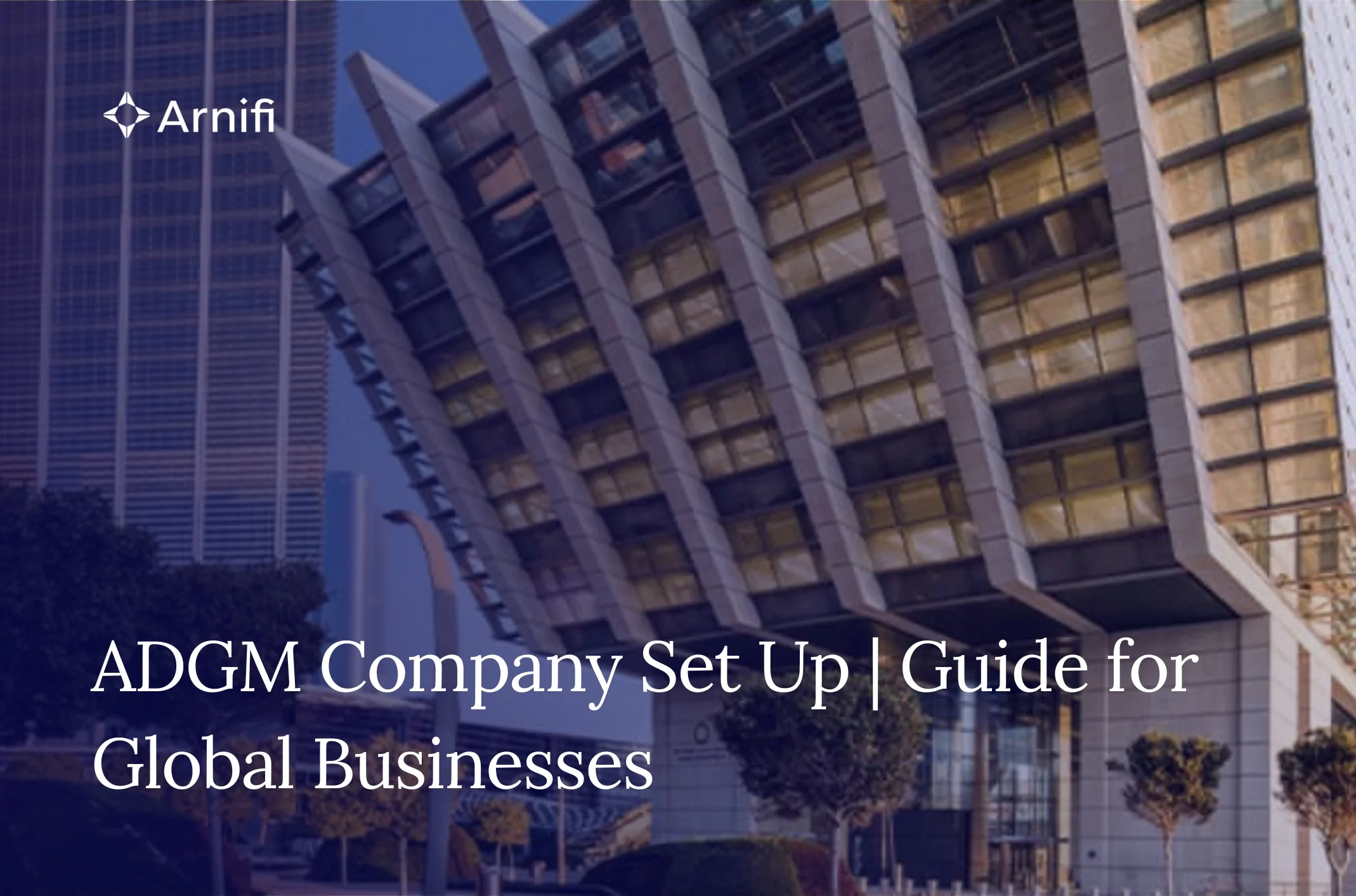Real Estate Business Setup in Dubai | Start Your Property Company Today
by Shethana Mar 04, 2025  10 MIN READ
10 MIN READ

Dubai’s property market covers property investment and development across the emirate. Quick economic growth, forward-thinking urban planning, and strategic positioning have contributed to some of the changes in the market that have taken place. Starting/Shifting a real estate business in Dubai involves a lot of plans, ranging from obtaining a brokerage license from the Dubai Land Department to meeting Real Estate Regulatory Agency guidelines.
You may set up shop in the mainland or a free zone, as per your requirement. Proper planning and structuring are the keys to success in this competitive market.
Table of contents
- Types of Real Estate Businesses in Dubai
- Legal Requirements and Licensing
- Real Estate Business Setup Process in Dubai
- Office Location and Setup – Mainland vs. Free Zone: Pros and cons
- Financial Setup and Costs Involved in Real Estate Business Formation
- Marketing and Growth Strategies
- Challenges and Opportunities
- Benefits of Setting up a Real Estate Business in Dubai
- Final Thoughts
- FAQs
Types of Real Estate Businesses in Dubai
1. Real Estate Brokerage
This is a common choice, where companies bring buyers and sellers together and make money on sales. To be legal, you’ll have to get a license from the Dubai Land Department (DLD).
2. Property Development
Dubai is a center for creative development projects. This entails purchasing land, securing licenses, and handling buildings to create new properties into existence.
3. Property Management
Many of the property owners in Dubai look to specialized management firms to manage maintenance, collect rent, and deal with tenant matters, ensuring easy and trouble-free operations.
4. Real Estate Investment Trust (REITs)
There are many companies that invest in income generated properties & distribute profits to share holders. Foreign investment in real estate is welcome in Dubai. However, regulations make the process smooth.
Legal Requirements and Licensing
Regulatory authorities involved (RERA, DLD): The first step to start a legally compliant real estate career in the city you need to obtain the required license.
Without a RERE license, it’s illegal to work as a real estate agent in Dubai. Which can lead to fines, penalties, or legal action from the Dubai Land Department (DLD).
Types of Licenses Required
- Brokerage License: This mandatory license, issued by the Dubai Land Department (DLD), is essential for all real estate firms. It provides the necessary authorization to carry out real estate transactions within the UAE.
- Property Management License: To run a property management business in Dubai, you must secure a license. This license is essential for companies that deal with property maintenance and tenant management.
- Developer license: In Dubai, companies that wish to build and sell properties legally must obtain a Real Estate Developer License issued by RERA.
Documentation needed and legal considerations
In order to be able to operate in Dubai, a company must obtain a DED license. All this involves obtaining initial approval, registering a trade name, selecting the appropriate business structure, and presenting proof of residence.
Real Estate Business Setup Process in Dubai
1. Choosing the right business structure (LLC, Sole Proprietorship, etc.)
When starting a real estate business in Dubai selecting the best business structure is crucial. However both mainland and free zone setups are available, most brokerages prefer free zones because of their tax benefits and friendly business atmosphere.
2. Register your trade name
Once you’ve decided on your business structure, the next step is to choose a trading name. Submit your application to the Dubai DED along with the necessary documents. Select a name that showcases your real estate services and leaves a lasting impression in the market.
3. Initial Approvals and documentation
After registering your trading name, the next step is to get preliminary approval from the DED. Make sure to submit your application along with the necessary documents to receive the approval for setting up your business.
4. RERA Certification and Training Requirements
Dubai, the Real Estate Regulatory Agency (RERA) is in charge of the real estate sector. To start your journey, you must complete a training course at the Dubai Real Estate Institute (DREI) and obtain the Certified Training for Real Estate Brokers qualification.
5. Finalizing the license and approvals
To operate your real estate business legally in Dubai, you must obtain a trade license from the Department of Economic Development (DED) and a brokerage license from the Dubai Land Department (DLD). These licenses are crucial for carrying out real estate transactions
Office Location and Setup – Mainland vs. Free Zone: Pros and cons
Real Estate Company Formation in Mainland
Mainland companies, licensed by Dubai’s DED, can operate across the UAE, including the local market. They offer greater flexibility in business activities and market access.
| Advantages | Disadvantages |
| Unlimited market access and no trade restrictions. | Need assistance from the local partner i.e., networking is important. |
| Government contracts with strategic expansions. | Less tax implications |
| No capital repatriation i.e., no need to send back the individual’s money back to home country. | Requires a minimum investment depending on the industry standards. |
Real Estate Company Formation in Free Zone
Free zones in Dubai offer unique advantages for businesses engaged in international trade, services, and exports. With more than 30 options available, prominent hubs include DMCC, Dubai Silicon Oasis, and JAFZA.
| Advantages | Disadvantages |
| 100% foreign ownership and tax savings. | Restricted market access |
| Easy and streamlined setup | Geographic limitations |
| Customizable workspace | Restricted government project access |
Document Required to Get a Real Estate Company Office Space in Dubai
To finalize your registration keep these documents ready:
- Tenancy contract
- Security deposit receipt
- Tenant’s passport and UAE visa (for non-GCC nationals)
- Tenant’s Emirates ID
- Copy of the landlord’s passport (if applicable)
- Copy of the property title deed
- DEWA Premises Number (or recent DEWA bills/Green bill)
- Previous Ejari and DEWA bill (for renewals)
- Trade license (for commercial properties)
Setting Up Operations & Back-Office Support in Dubai
Establishing operations in Dubai involves finding office space, acquiring the necessary licenses, recruiting personnel for essential roles such as HR and accounting, and setting up systems to handle daily activities, all while adhering to local regulations.
Financial Setup and Costs Involved in Real Estate Business Formation
1. RERA License & Setup Costs in Dubai
To start a real estate business in Dubai, you need to obtain a RERA license. This process involves completing training, paying application fees, and covering the costs of office space. Generally, the total setup expenses can range from AED 15,000 to AED 50,000.
2. Initial setup cost
Starting a real estate company in Dubai typically requires around AED 21,000, which includes the initial licensing and certification fees, but does not account for other setup costs.
3. Property investor visa cost
If you’re planning to start a real estate business in Dubai, you might need a Property Investor Visa. To qualify, you’ll need to buy property valued at a minimum of AED 750,000. This visa allows you to reside in the UAE and can be renewed as long as you keep ownership of the property. Although processing fees and other costs can differ, the primary investment will be the property itself.
Marketing and Growth Strategies
Developing a Powerful Dubai Real Estate Brand: Establish your niche and know who your target market is if you want to stand out in Dubai’s cutthroat real estate market.
By developing a buyer persona, you can better customize your brand to your customer’s needs, increasing your company’s relatability and credibility.
Digital Marketing, Lead Generation, and Networking Strategies: Real estate companies must have a strong online presence in the modern digital world to draw in customers.
To expedite lead generation, agencies like NEXA use CRM platforms like HubSpot and data-driven marketing.
While social media and SEO increase visibility, a well-designed online persona fosters credibility and trust.
Customer relationship management and retention: Building long-term relationships, nurturing clients, and tracking leads all depend on a robust CRM system.
Real estate companies prosper in Dubai’s dynamic market thanks to proactive engagement, first-rate service, and personalized communication.
Challenges and Opportunities
Handling the Competitive Real Estate Market in Dubai
The real estate market in Dubai moves quickly and fiercely, with many ongoing projects and foreign investors influencing the market.
Businesses need to understand property values, analyze market trends, and build a distinctive brand in order to stay ahead of the competition. Long-term success is ensured by adjusting to changes in the market.
Overcoming Legal and Bureaucratic Challenges in Dubai Real Estate
While Dubai offers great incentives for real estate businesses, navigating its complex legal and bureaucratic processes can be challenging.
Securing licenses, complying with DED and RERA regulations, and understanding real estate laws require time and diligence. A proactive approach helps avoid delays and ensures smooth business growth.
Benefits of Setting up a Real Estate Business in Dubai
Tax advantages and incentives
Dubai is a great place to invest in real estate because of its tax-free atmosphere. Businesses and investors can optimize profits because there are no corporate, income, or wealth taxes, and rental income is completely tax-free.
Strategic location and access to global markets
The demand for residential and commercial real estate in popular areas like Downtown Dubai and Dubai Marina is fueled by Dubai’s strategic location between East and West, which makes it a global center for business and tourism. This tactical edge keeps drawing in investors and propelling market expansion.
Government support and infrastructure
Dubai is a booming real estate hub because of its world-class infrastructure and pro-business policies. Bureaucratic obstacles are reduced by RERA’s clear regulations and DED’s simplification of business setup. Property values and investment opportunities are further enhanced by advanced telecom, transportation, and facilities.
Also Read:
Final Thoughts
Dubai’s real estate market offers immense opportunities, and Arnifi is your trusted guide. With strong government support and a tax-free environment, setting up a real estate business requires the right strategy. Arnifi helps you navigate challenges and maximize opportunities in luxury properties, smart homes, and short-term rentals. Now is the time to invest in this thriving market.
FAQs
The brokerage license from the Dubai Land Department (DLD), costs between AED 10,000 and AED 15,000.
Yes, you can start a real estate business in Dubai, first look for investors or maintain the minimum capital required, and get a license from the Dubai Land Department (DLD).
Rental yields on Dubai real estate average between 5 and 8%, and they are even higher in desirable neighborhoods like Downtown Dubai and Dubai Marina.
Get a real estate brokerage license from the Dubai Land Department (DLD) by earning your RERA certification to open an estate agency in Dubai.
Particularly for foreigners, purchasing real estate in Dubai is comparatively simple because of the country’s well-defined laws. But ensure you have a strong network to make a good profit.
You must have a UAE residency visa, finish a training program approved by RERA, pass the RERA exam, and get a broker license from a registered real estate company.
Top UAE Packages

Related Articles
Top UAE Packages



